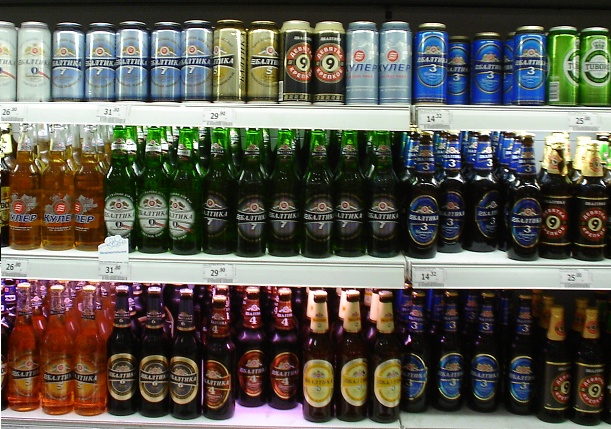Scientists have uncovered a genetic reason why some people are prone to alcoholism.
 University of Massachusetts Medical School researcher Gilles Martin and his colleagues, writing in this week's PNAS, have found that one of the components of a pore (called the BK channel) found on the surfaces of brain cells can predispose to the rapid development of alcohol tolerance. This pore allows potassium to enter nerve cells, helping to damp down nerve excitability. But alcohol makes the pore remain open for longer than normal, reducing nerve activity and thus accounting for its depressant effects.
University of Massachusetts Medical School researcher Gilles Martin and his colleagues, writing in this week's PNAS, have found that one of the components of a pore (called the BK channel) found on the surfaces of brain cells can predispose to the rapid development of alcohol tolerance. This pore allows potassium to enter nerve cells, helping to damp down nerve excitability. But alcohol makes the pore remain open for longer than normal, reducing nerve activity and thus accounting for its depressant effects.
But in some people, despite the continued presence of alcohol, the channel quickly returns to its normal activity, which could urge the drinker to consume even more alcohol to maintain the intoxicating effect. Individuals who show this kind of nerve cell behaviour seem to be more prone to alcohol dependence, although scientists had no idea how it happens.
To find out Martin and his team first knocked out a gene called beta4, which codes for part of the BK channel targeted by alcohol. Tests on nerve cells in these animals showed that, compared with normal mice, the cells very quickly returned to normal after alcohol exposure. Putting the beta4 subunit back, on the other hand, made the channels recover much more slowly. So perhaps, suggests Martin, that individuals with a tendency to alcoholism might have mutations in their beta4 genes which affects the levels of the protein in their brains, or how it controls the BK channel activity in the presence of alcohol.
"This we need to find out," he says. "And then perhaps this will lead to tests that can enable doctors to spot people at risk of alcoholism, or perhaps the development of novel drugs to compensate for the altered channel activity which might reduce a person's risk."
- Previous Sunspot weather link
- Next Flu clue to pandemic potential










Comments
Add a comment